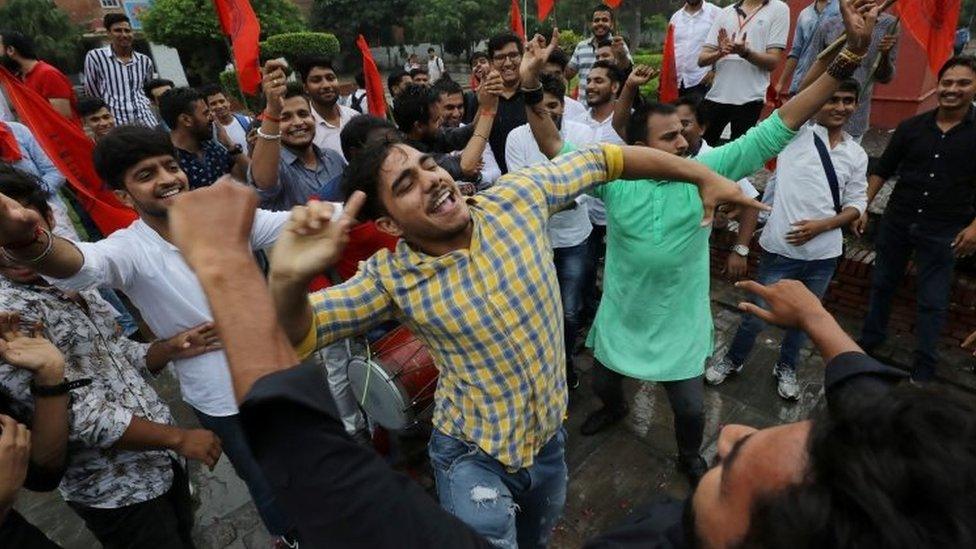Article 370: The Indians celebrating Kashmir's new status
- Published
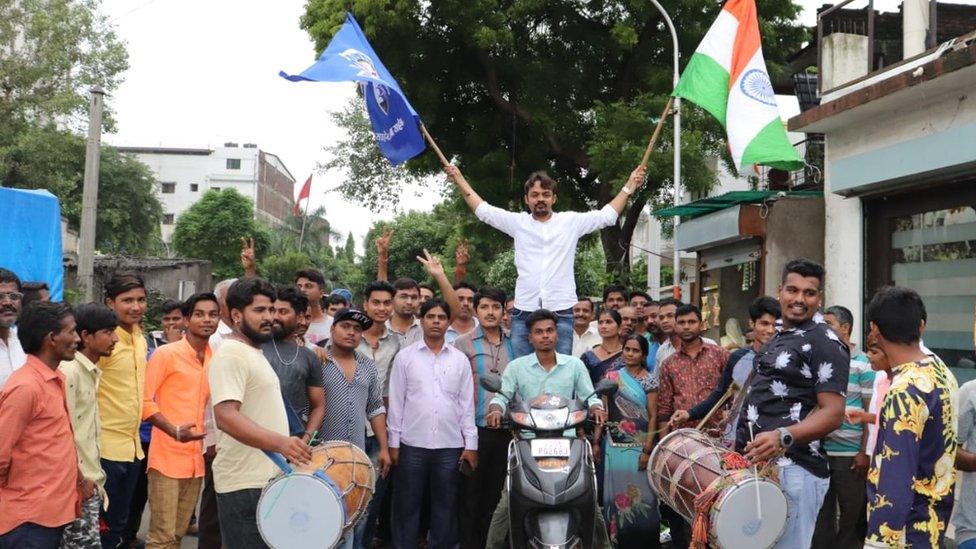
India's decision to revoke special autonomous status for the part of Kashmir it controls was met with outrage by the opposition and dismay by many others - but large numbers of Indians have been celebrating, writes BBC Gujarati's Dipalkumar Shah.
In Kashmir, an unprecedented military presence on the streets and a state-wide communications lockdown mean that little has been heard from the state, but all indications so far are that the move has been met with anger.
However, in the rest of India there are many who support the decision to revoke Article 370 - as the constitutional provision granting the region special status is known. This is because Kashmir remains a sensitive and important issue to many Indians who consider it a fundamental part of their national identity and pride.
In fact, the Hindu nationalist Bharatiya Janata Party (BJP) has long opposed Article 370 and revoking it was a part of its 2019 election manifesto.
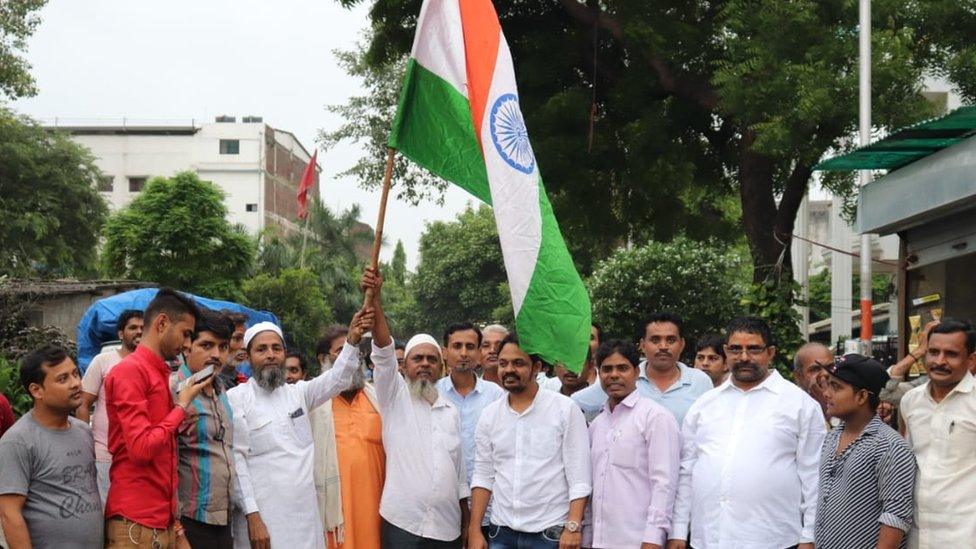
So while a sense of outrage has dominated global headlines and the main opposition Indian National Congress spoke out vehemently against the bill, it was by no means universally unpopular across India's political spectrum.
In a surprising move, the Bahujan Samaj Party led by charismatic Dalit (formerly known as untouchables) leader Mayawati, and anti-corruption crusader Arvind Kejriwal's Aam Aadmi Party supported the decision to revoke Article 370.
Both parties are traditionally associated with liberal and progressive movements, so their position is an indication of just how emotive the issue of Kashmir is.
Allow X content?
This article contains content provided by X. We ask for your permission before anything is loaded, as they may be using cookies and other technologies. You may want to read X’s cookie policy, external and privacy policy, external before accepting. To view this content choose ‘accept and continue’.
Other regional parties including the YSR Congress and the Telugu Desam in Andhra Pradesh state, and the AIADMK in Tamil Nadu also backed the move.
In Indian-administered Kashmir, both major political parties - the People's Democratic Party (PDP) and the National Conference (NC) - spoke out against it.
'Darkest day in Indian democracy'
Mehbooba Mufti, a former chief minister of the state was among the first to condemn the decision.
Despite the internet shutdown in the region, she was able to tweet on 5 August, calling it "the darkest day in Indian democracy".
Allow X content?
This article contains content provided by X. We ask for your permission before anything is loaded, as they may be using cookies and other technologies. You may want to read X’s cookie policy, external and privacy policy, external before accepting. To view this content choose ‘accept and continue’.
Allow X content?
This article contains content provided by X. We ask for your permission before anything is loaded, as they may be using cookies and other technologies. You may want to read X’s cookie policy, external and privacy policy, external before accepting. To view this content choose ‘accept and continue’.
She added it was a betrayal of Kashmir's decision to align with India in 1947.
"We have been let down by the same nation we ceded to," she told author and columnist Aatish Taseer in an exclusive interview for the BBC.
NC leader and another former state chief minister Omar Abdullah called the move a total "betrayal of trust" of the people of the state.
Allow X content?
This article contains content provided by X. We ask for your permission before anything is loaded, as they may be using cookies and other technologies. You may want to read X’s cookie policy, external and privacy policy, external before accepting. To view this content choose ‘accept and continue’.

Since then, neither leader has been heard from and there is no clarity on where they are.
The Kashmiri Pandit reaction
But there is one significant section of Kashmiris celebrating the revocation of Article 370 - the high-caste Hindus from the region, known as Kashmiri Pandits.
The Pandits, who had co-existed with their Muslim neighbours for generations, were forced out of Kashmir valley in the 1990s as Muslim militancy grew.
Militant groups targeted them by killing their men, burning their homes and damaging their places of worship. Mosques would make calls for them to leave the valley.
Their population in the valley dwindled from 300,000 to between 3,000 and 5,000 with most of them settling in neighbouring Jammu or fleeing to other parts of India.
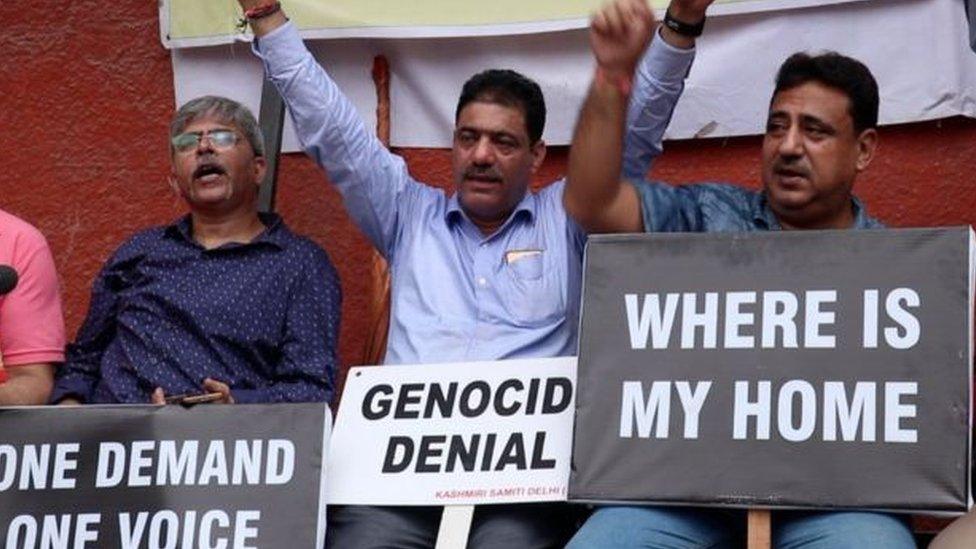
BBC Hindi spoke to some Kashmiri Pandits after the decision.
"On 19 January 1990, I was in hospital - I came to know of the warnings to Kashmiri Pandits to leave Kashmir or die. We heard such warnings from mosques. It was a terrifying experience for us. I relived these memories when I watched on TV that there is an atmosphere of fear in Kashmir. I want to say one thing - today they must have understood the pain of Kashmiri Pandits," Ashok Bhan said.
"It's a really good decision by the Modi government. Kashmiri Pandits are happy with this step," Ashok Kumar Mattu said.
Celebrations on Indian streets
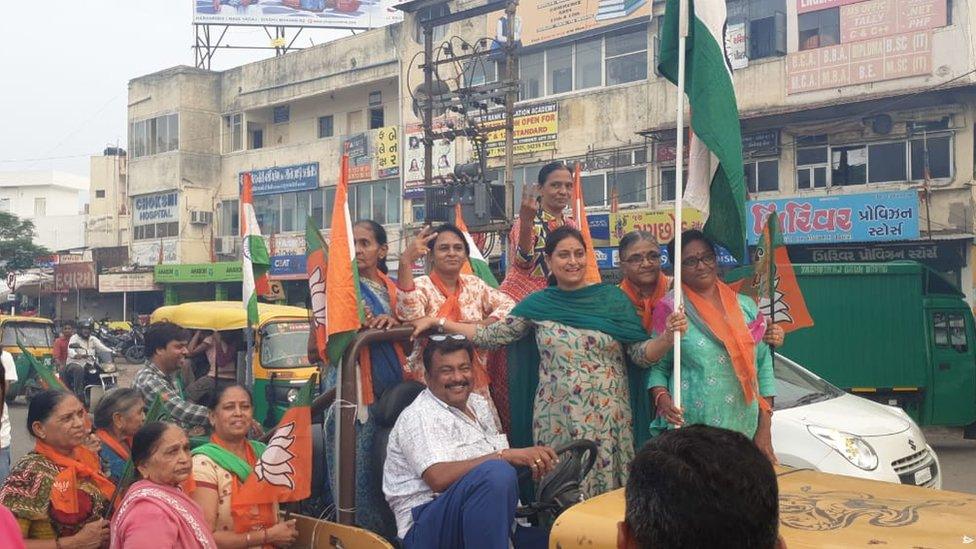
This sentiment was echoed in other areas across India.
When the news broke on Monday, people in cities like Delhi and Mumbai took to the streets to show their support.
But the celebrations were particularly pronounced in the western state of Gujarat where people beat drums, danced and distributed sweets on the roads.
Prime Minister Narendra Modi and Home Minister Amit Shah - who made the announcement about Article 370 - are both from Gujarat. Mr Modi served as chief minister four times and Mr Shah was one of his most trusted ministers.
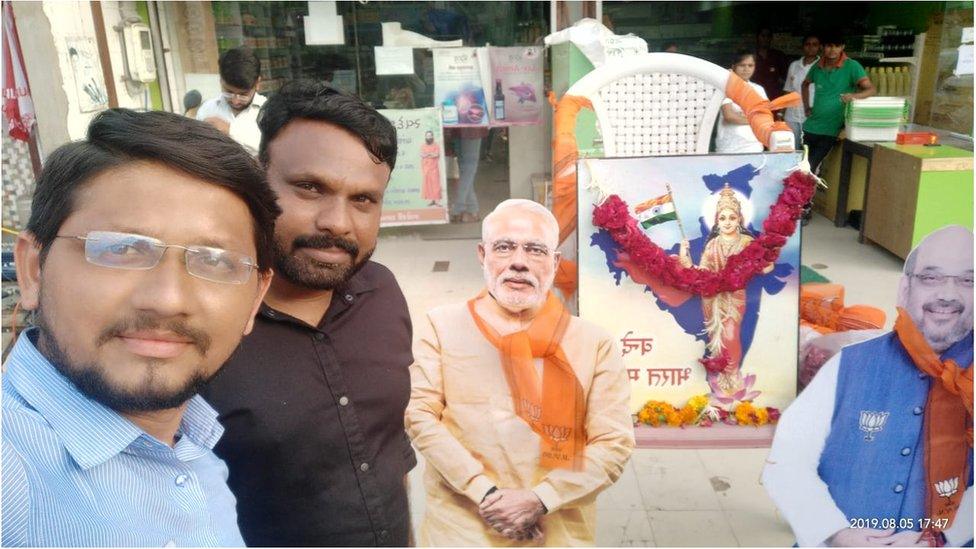
"In the last seven decades Kashmir was deprived of development. Protests and militancy disrupted peace. Now Kashmir will be a part of mainstream politics and policies. In true spirit, now Kashmir will become a real heaven, " Mayank Patel, one of the street party organisers, told the BBC.
Himanshu Ladaviyam, the leader of a Dalit social group, was also a part of the celebrations.
"Narendra Modi and Amit Shah finally abrogated Article 370. They have fulfilled a decades-old dream of 1.2 billion people," he said.
Kashmir's anger is still largely unheard
As Kashmir remains under a complete lockdown, few voices are coming out.
Mr Modi appeared on state media on Thursday to defend his highly controversial decision and said a "new era" was beginning for the region, where "hindrances" to its development had been lifted.
But it is debatable how many Kashmiris heard him, and what effect if any, his speech would have on them.
Baramulla resident: 'Our livelihood is affected, nobody is at peace'
Hundreds of people, including politicians, activists, business leaders and professors are being held in makeshift detention centres in an effort to quell protests.
But violence is already breaking out.
BBC reporters saw some protesters throwing stones at security forces, and spoke to residents who said they feared that the violence could intensify.
"People of Kashmir are very angry," said Iqbal, a local travel agent.
"They are like a volcano that will eventually erupt and India is unaware of the consequences."
- Published5 August 2019
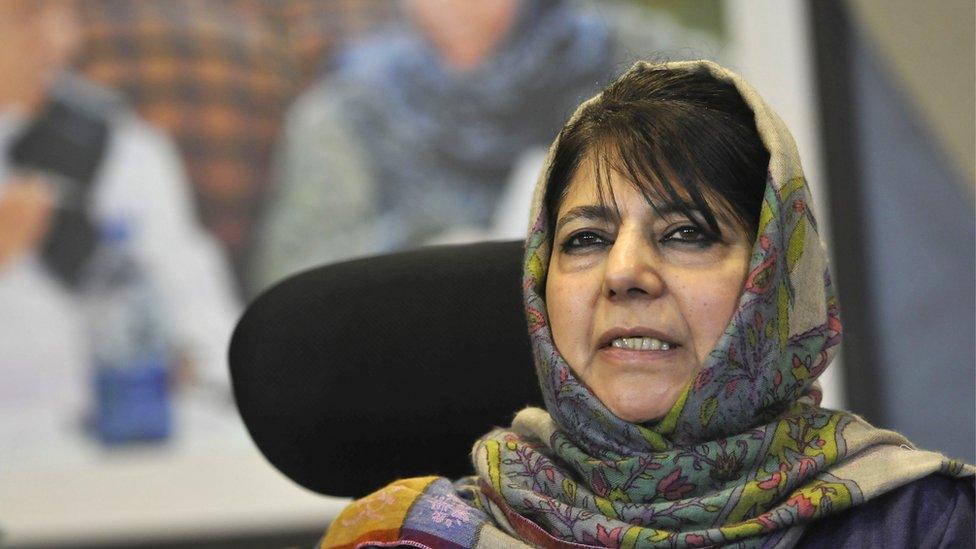
- Published5 August 2019
